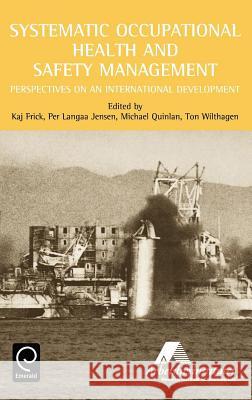Systematic Occupational Health and Safety Management: Perspectives on an International Development » książka
Systematic Occupational Health and Safety Management: Perspectives on an International Development
ISBN-13: 9780080434131 / Angielski / Twarda / 2000 / 552 str.
In the past 15 years the notions of systematic OHS management and OHS management systems have gained wide currency amongst regulators, employers and other parties in advanced industrialised countries. Indeed, these related but distinct concepts are now also finding their way into developing countries. Inducing employers to take a comprehensive, programmatic and preventive responsibility for OHS rather than just prescribing specific solutions has emerged as a major new regulatory strategy and this approach has also been voluntarily assumed by an increasing number of (generally large) organisations. Government methods to promote OHSM as well as the form and content of both these and voluntary management systems vary widely.
There has been little attempt to critically assess the developments just described, let alone compare different forms of OHSM, examine the problems of implementing these policies or identify their strengths and limitations. This book seeks to address this gap. With diverse contributions from leading experts in Europe, America and Australasia, the book examines the origins, development, application and value of OHSM, as well as providing an international perspective on their effectiveness in managing ill-health at work. It also examines the impact of recent changes in economic, labour market, organisational and regulatory structures.











